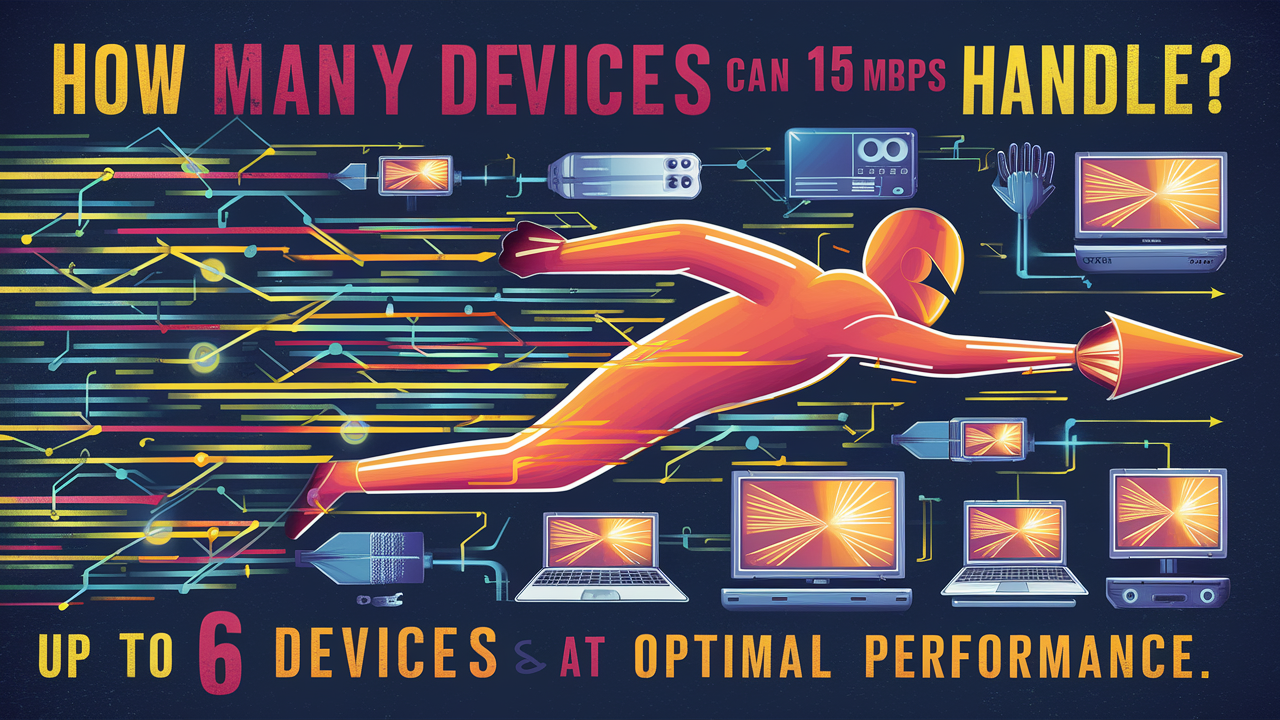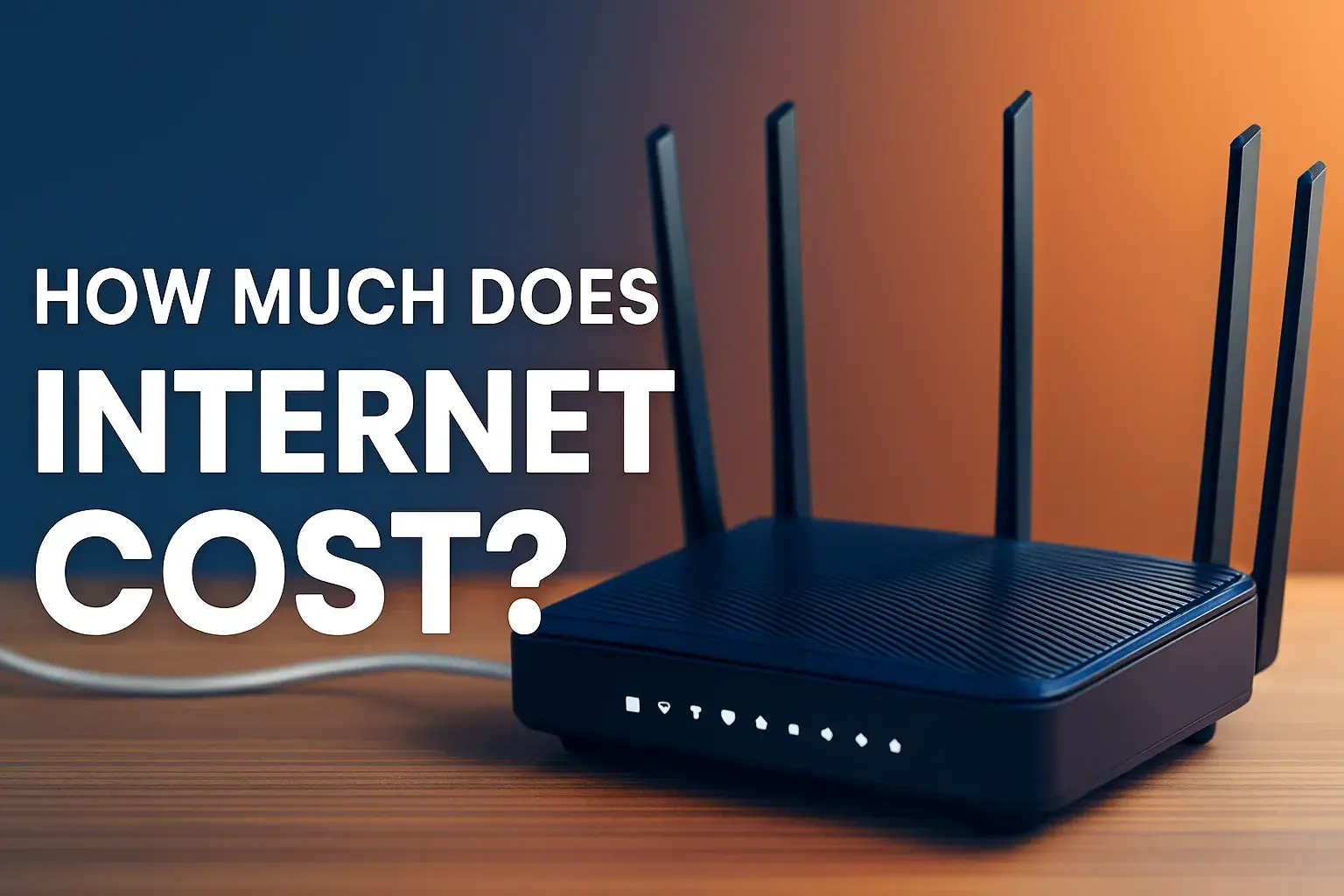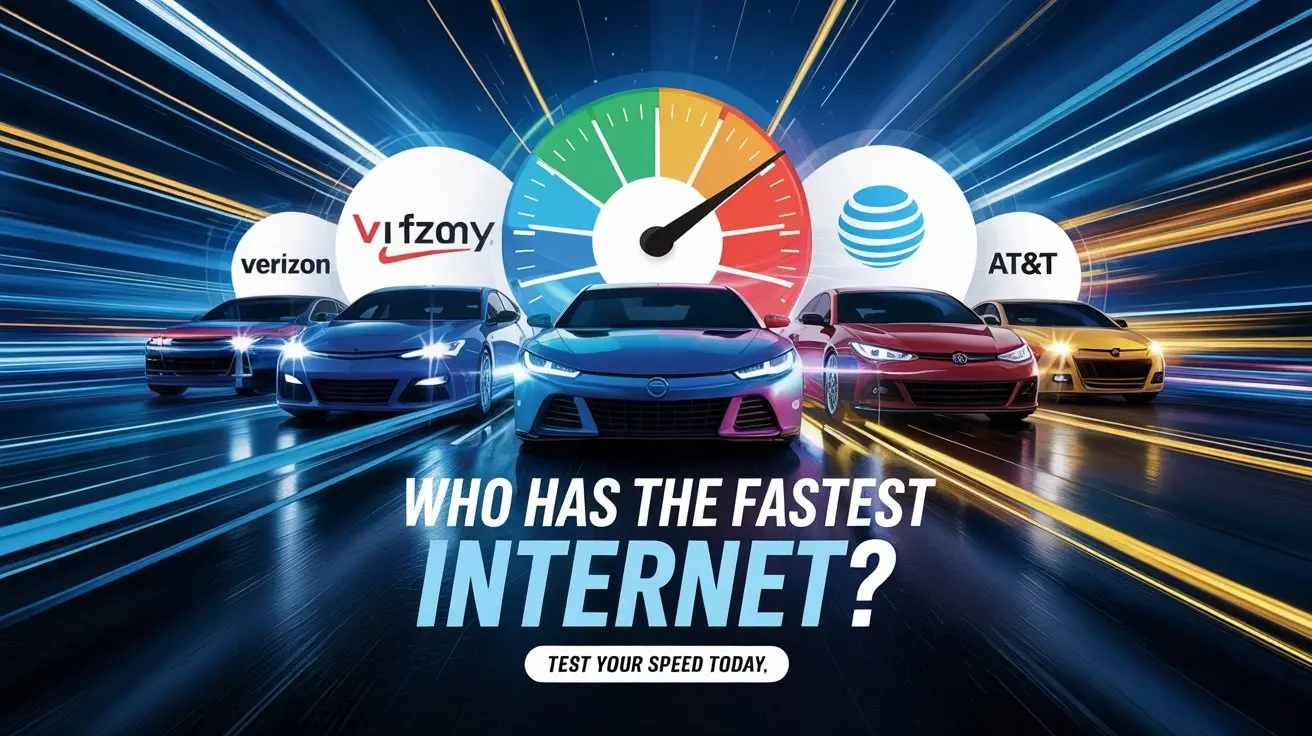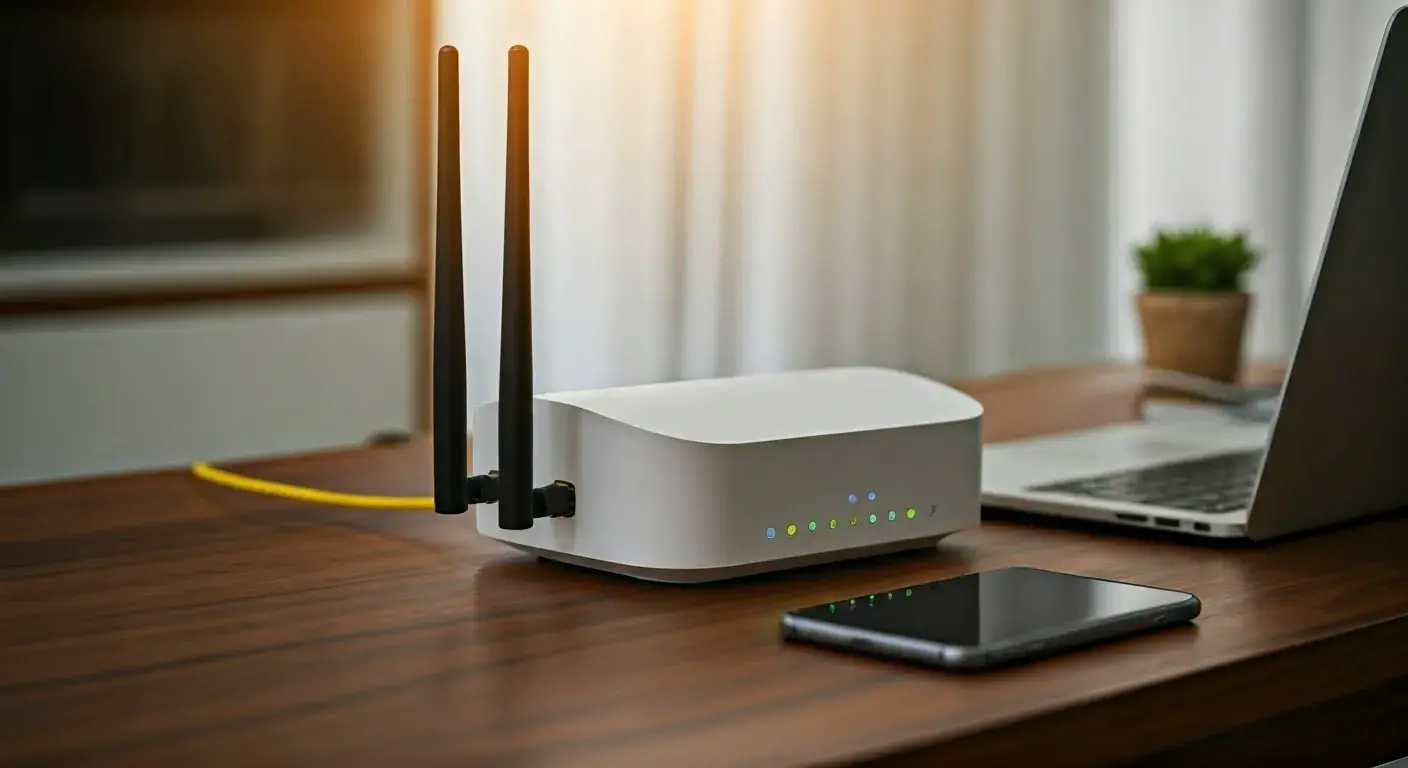How Many Devices can 15 Mbps Handle?

As the amount of smart devices that connect to home networks increases, many begin to ask, what is the amount of internet space I need? The particular query that often arises is how many devices are supported contendedly by a 15 Mbps internet connection. In this article, readers are informed about what 15 Mbps entails and the number of devices that it can handle at the same time.
Although a 15 Mbps Internet connection looks like a progressive step, it does not necessarily mean that it will guarantee high speeds and functionality.
Internet connection speeds are indicated in terms of Megabits per second, normally abbreviated as Mbps. It is the highest level of data transfer possible over the connection that we can speak of. A 15 Mbps connection means that the maximum transfer rate of a link is 15 Megabit or 1.875 Megabytes per second.
Describing Mbps as the rate of flow of water in a pipe may help in understanding this concept better. If the pipe diameter is proportional to the bandwidth then indeed a bigger pipe (higher Mbps) enables more water (data) to flow through it per second. Fifteen Mbps connection is like having a pipe that is somewhat in between being thin and thick.
The actual speeds can range from 14.6 Mbps at the maximum to as low as 0.01 Mbps and they are not fixed as they constantly vary based on the congestion that is in the network, distance from the service provider, and wifi interference among other factors. Real-world speeds are generally lower and can be around 1015 Mbps for a connection with a rated speed of 15 Mbps when it is used normally.
A related question that arises is how many devices are possible with a bandwidth of 15 Mbps?
The number of devices that may be connected simultaneously to the 15 Mbps depends on the activity of the device on the internet. Streaming 15 Mbps of video will be consumed by a few devices that stream HD video, which leaves no bandwidth to perform other tasks. However, if lightly browsing over the internet and watching low-quality videos, 15 Mbps can support anything between five to ten devices concurrently.
To better understand that, let us look at it in more detail.
Light Use
If the connected devices are used lightly for things like:
- Email
- Social media
- Web browsing
- Music streaming
- Standard definition video
Therefore, it can be posited that a 15 Mbps connection can support about 810 devices with ease. This is based on a scenario where two family members are using their phones, two others working on their Laptops, and some Music or video streaming. However, the connection might get slow when recording 4K video or doing large downloads during streaming.
Medium Use
If the usage leans towards more data-intensive tasks like If the usage leans towards more data-intensive tasks like:
- HD video streaming
- Video conferencing
- Large file downloads
- Console/PC online gaming
If that is the case, then be prepared to handle 58 devices for efficient connectivity over a 15 Mbps connection. The performance may be affected by 5 or more HD video streams including the main one.
Heavy Use
For consistent heavy usage like:
- HD streaming on various devices: 11 The option for 4K streaming was also enabled across the multiple devices that we used for the experiment.
- VR gaming
- Smart home devices
A 15 Mbps connection is inadequate for more than 35 devices at a time depending on exactly what process is being executed. For instance, if 23 users are watching 4K video, they would consume 15 Mbps in order can leave little room for other activities in the same network.
In many homes today, the truth is that it is not the case of a house that falls in the category of a moderately used home, but it is also not in the category of a heavily used home. People use multiple devices such as phones, laptops, tablets, gaming consoles, etc., which they use to stream HD videos, play games, and video chat among others, if you have 5 plus devices for which you see them competing for bandwidth, then go for 2550 Mbps.
Other Considerations that Contribute to Device Limits
While internet download/upload speeds set bandwidth limitations, other factors also influence the number of devices a home network can handle:
- Data conserving – Some uses may consume less data on a new device as compared to an older one. In addition, newer devices are also likely to offer better wifi connections as well, as seen in the list above.
- Wired devices – these are those devices that are in direct connection with the router through a wire such as an Ethernet cable thus leaving wireless bandwidth to other things. Wired backup for backhaul from access points also aids.
- Physical network density – Many networks clustered in a single place, for instance in a compound or an apartment, will experience interferences and congestion, hence using a larger amount of bandwidth to perform similar chores.
- Provider traffic shaping – Some providers adjust the amount of bandwidth given to certain types of traffic during peak hours for instance they set bandwidth limits for video and VoIP traffic to free up more bandwidth for data traffic. However, this can cause an impact on the performance particularly when the connection is being pushed to the edge.
- Router quality – A router that is from a higher class, with good and strong software, CPU, memory, and antennas in a position to handle more devices without much pressure. The products we currently get from cheap brands in the market are usually not so capable when it comes to handling HD streaming, gaming, and multiple users.
In conclusion, a 15 Mbps Internet connection would be sufficient for standard home use cases, where 510 devices could work efficiently. There might be a degradation in performance if all the devices want to access material that requires much bandwidth at the same time. For added convenience, you should switch to a 2550 Mbps package with your internet service provider to allow for more devices.
Ready to upgrade your internet experience? Call us now at +1 844-349-7575 to explore the best Cox Internet plans for your needs!





